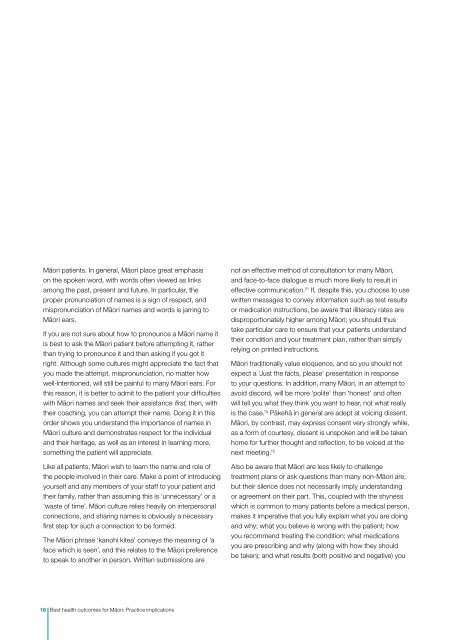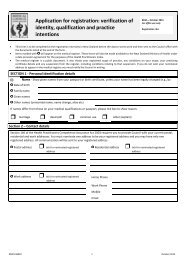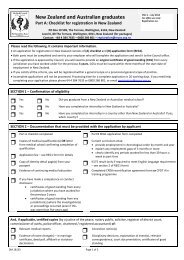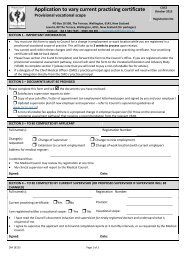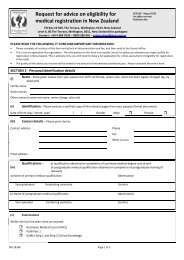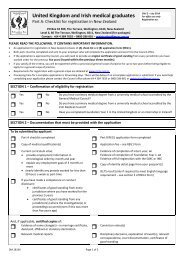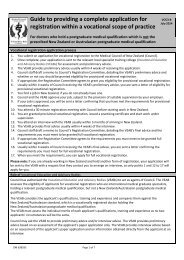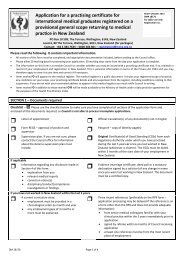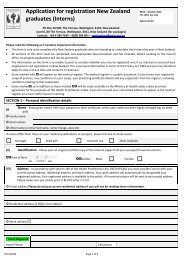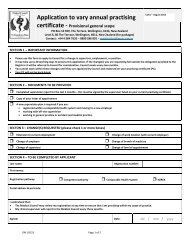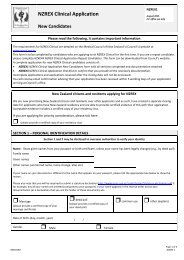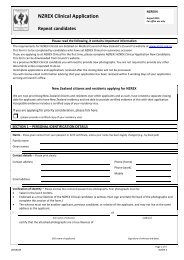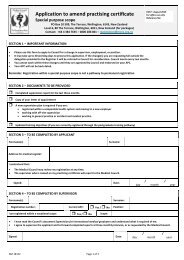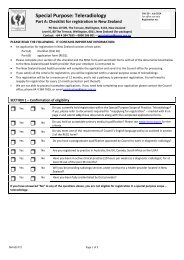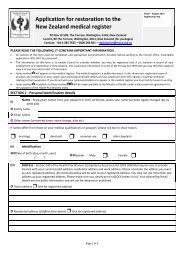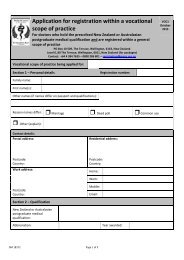Best health outcomes for Maori - Medical Council of New Zealand
Best health outcomes for Maori - Medical Council of New Zealand
Best health outcomes for Maori - Medical Council of New Zealand
You also want an ePaper? Increase the reach of your titles
YUMPU automatically turns print PDFs into web optimized ePapers that Google loves.
Mäori patients. In general, Mäori place great emphasis<br />
on the spoken word, with words <strong>of</strong>ten viewed as links<br />
among the past, present and future. In particular, the<br />
proper pronunciation <strong>of</strong> names is a sign <strong>of</strong> respect, and<br />
mispronunciation <strong>of</strong> Mäori names and words is jarring to<br />
Mäori ears.<br />
If you are not sure about how to pronounce a Mäori name it<br />
is best to ask the Mäori patient be<strong>for</strong>e attempting it, rather<br />
than trying to pronounce it and then asking if you got it<br />
right. Although some cultures might appreciate the fact that<br />
you made the attempt, mispronunciation, no matter how<br />
well-intentioned, will still be painful to many Mäori ears. For<br />
this reason, it is better to admit to the patient your difficulties<br />
with Mäori names and seek their assistance first, then, with<br />
their coaching, you can attempt their name. Doing it in this<br />
order shows you understand the importance <strong>of</strong> names in<br />
Mäori culture and demonstrates respect <strong>for</strong> the individual<br />
and their heritage, as well as an interest in learning more,<br />
something the patient will appreciate.<br />
Like all patients, Mäori wish to learn the name and role <strong>of</strong><br />
the people involved in their care. Make a point <strong>of</strong> introducing<br />
yourself and any members <strong>of</strong> your staff to your patient and<br />
their family, rather than assuming this is ‘unnecessary’ or a<br />
‘waste <strong>of</strong> time’. Mäori culture relies heavily on interpersonal<br />
connections, and sharing names is obviously a necessary<br />
first step <strong>for</strong> such a connection to be <strong>for</strong>med.<br />
The Mäori phrase ‘kanohi kitea’ conveys the meaning <strong>of</strong> ‘a<br />
face which is seen’, and this relates to the Mäori preference<br />
to speak to another in person. Written submissions are<br />
<strong>Best</strong> <strong>health</strong> <strong>outcomes</strong> <strong>for</strong> Mäori: Practice implications<br />
not an effective method <strong>of</strong> consultation <strong>for</strong> many Mäori,<br />
and face-to-face dialogue is much more likely to result in<br />
effective communication. 51 If, despite this, you choose to use<br />
written messages to convey in<strong>for</strong>mation such as test results<br />
or medication instructions, be aware that illiteracy rates are<br />
disproportionately higher among Mäori; you should thus<br />
take particular care to ensure that your patients understand<br />
their condition and your treatment plan, rather than simply<br />
relying on printed instructions.<br />
Mäori traditionally value eloquence, and so you should not<br />
expect a ‘Just the facts, please’ presentation in response<br />
to your questions. In addition, many Mäori, in an attempt to<br />
avoid discord, will be more ‘polite’ than ‘honest’ and <strong>of</strong>ten<br />
will tell you what they think you want to hear, not what really<br />
is the case. 15 Päkehä in general are adept at voicing dissent.<br />
Mäori, by contrast, may express consent very strongly while,<br />
as a <strong>for</strong>m <strong>of</strong> courtesy, dissent is unspoken and will be taken<br />
home <strong>for</strong> further thought and reflection, to be voiced at the<br />
next meeting. 15<br />
Also be aware that Mäori are less likely to challenge<br />
treatment plans or ask questions than many non-Mäori are,<br />
but their silence does not necessarily imply understanding<br />
or agreement on their part. This, coupled with the shyness<br />
which is common to many patients be<strong>for</strong>e a medical person,<br />
makes it imperative that you fully explain what you are doing<br />
and why; what you believe is wrong with the patient; how<br />
you recommend treating the condition; what medications<br />
you are prescribing and why (along with how they should<br />
be taken); and what results (both positive and negative) you


